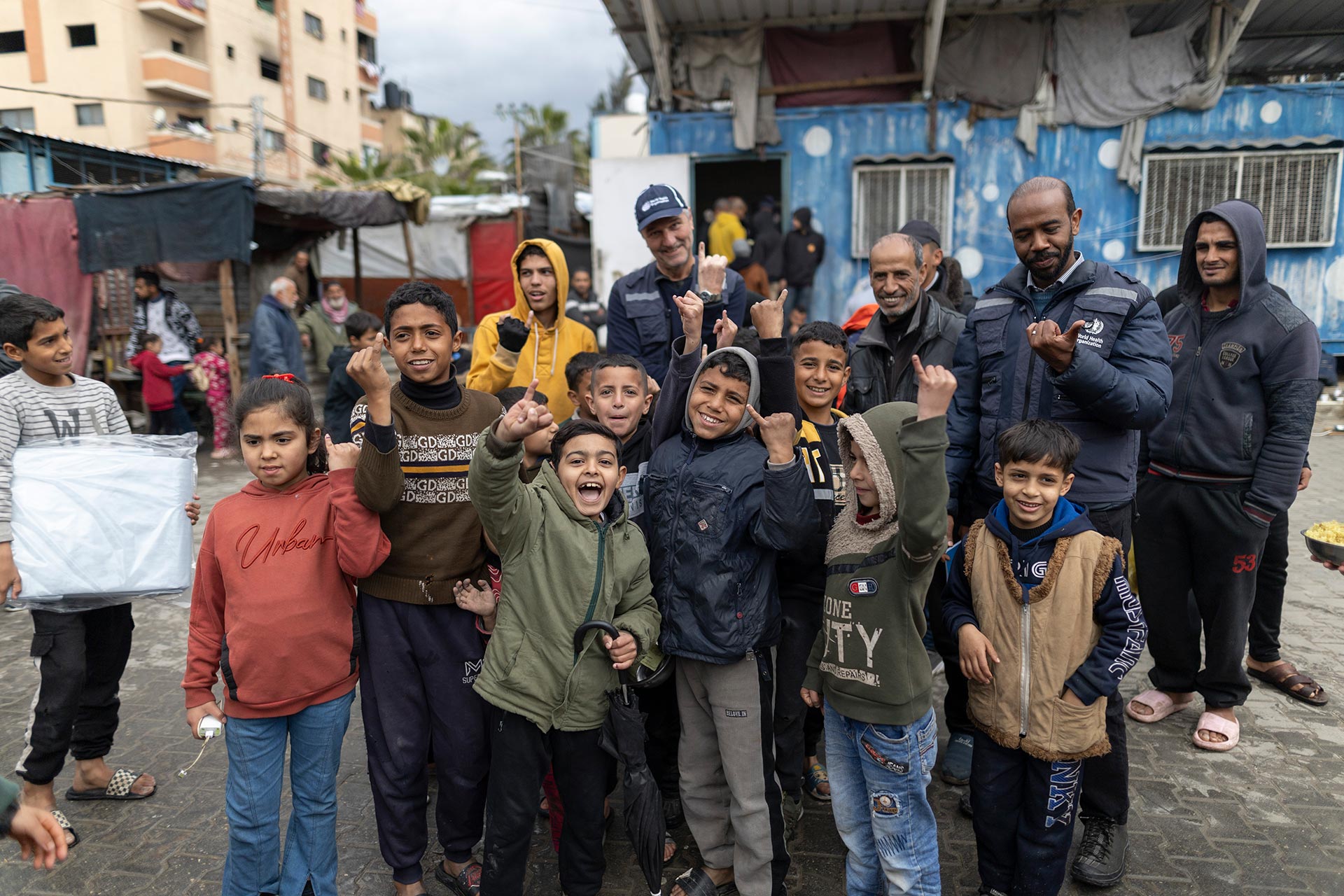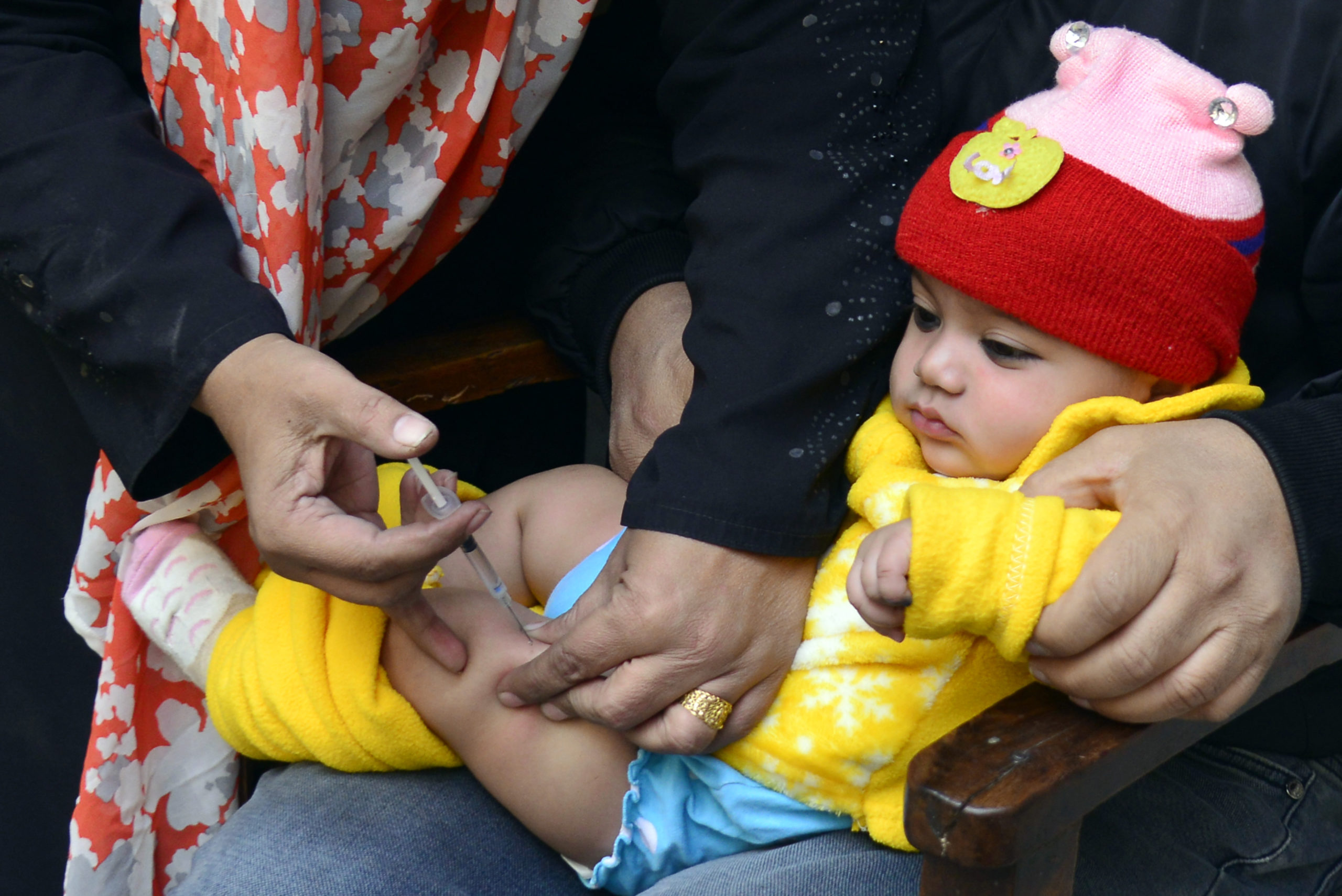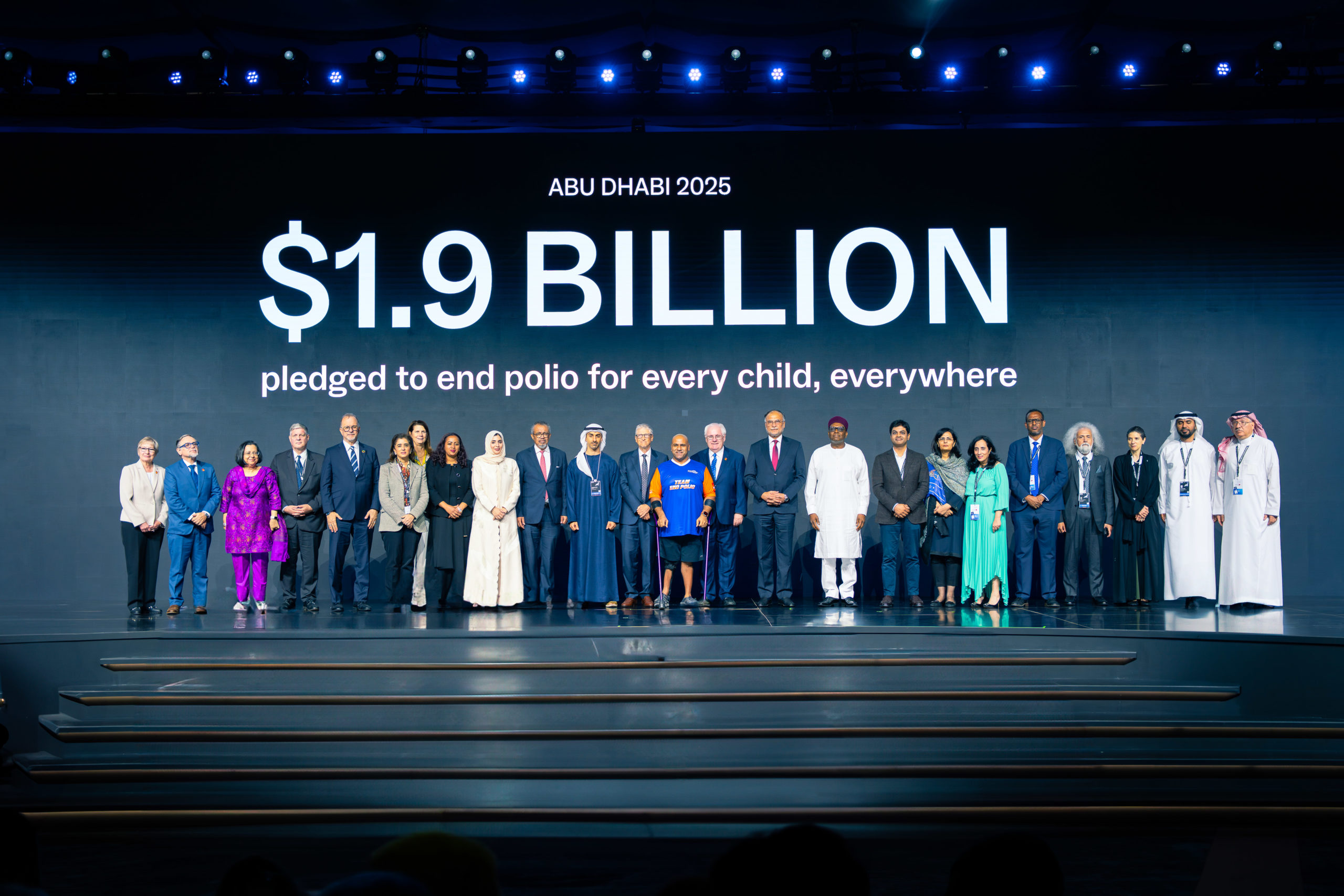It is a hot afternoon in Chagai, a small community on the south bank of the River Gambia when the polio vaccination team arrives to a rapturous welcome. Children and women jump to their feet, some waving and swinging their hands as they pound their feet on the ground in near perfect sync with the beat of the drum.
This excitement is caused by one certain member of the vaccination team wearing a bush hat and playing the drums. Lamin Keita, 60, is a cultural musician supporting the vaccination team in raising awareness about polio and encouraging parents to vaccinate their children. Lamin, popularly called Takatiti, because of one of his songs, is immediately surrounded by excited children, as he adjusts his beats to respond to the ecstasy and rigor of the dancers.
“When I arrive on the back of a pick-up truck with my megaphone and drums, children from the communities run after us in full excitement and jump up and down and ask me to play my drums,” Takatiti explains.
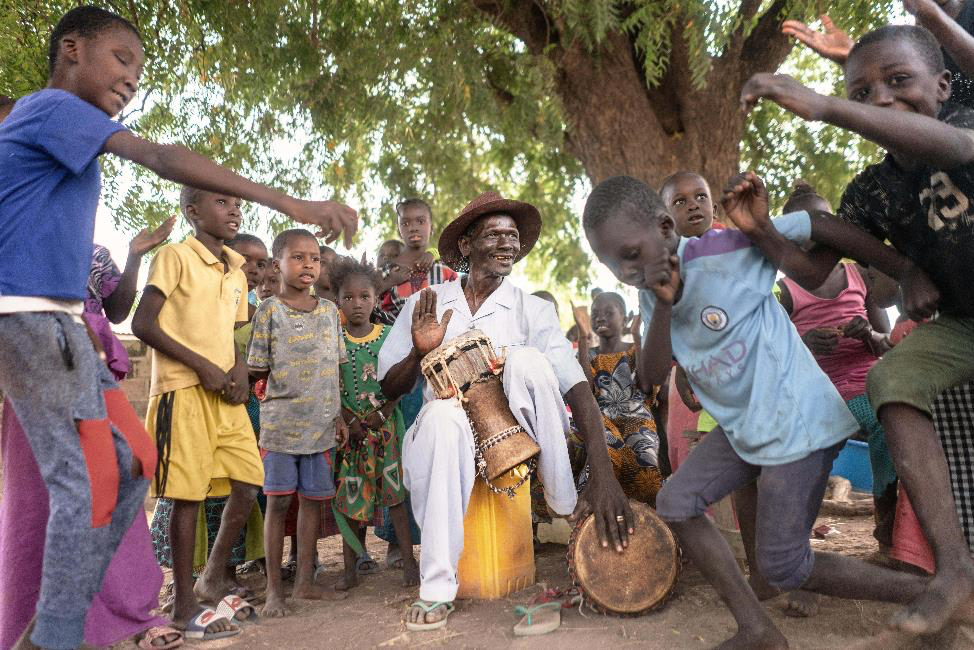
This is what Takatiti is popular for – pulling crowds with his drums to communicate important messages like polio vaccination. For almost four decades, he has toured communities in the region, accompanying health workers as they seek to persuade parents and caregivers to vaccinate their children during mass vaccination campaigns like the polio campaign.
Local voices are the most powerful voices
Building trust in vaccines among parents and caregivers is the first critical step towards achieving high immunization coverage to stop the spread of polio. UNICEF, as a leading partner of the Global Polio Eradication Initiative (GPEI) for social and behaviour change, supports the government in strengthening engagements with communities, as the voices of local leaders and influencers like Takatiti play a powerful role in helping allay fears and concerns of parents and caregivers about vaccines.
“I have been making town announcements since the mid-1980s. I am aware of polio and its terrible consequences. Families hear myths and rumours and get concerned about vaccines. As they already know and trust me, I try my best to give them accurate information and clear their doubts, so that they can vaccinate their children against polio and other dangerous diseases,” Takatiti says.
“It’s important to deliver messages that are supported by facts in an effective way”
Days before the start of a polio vaccination campaign and during the campaign itself, Takatiti walks up and down the streets of villages, playing his drums and using his megaphone to talk to communities about the dangers of polio, how vaccination is the only way to protect children, and that polio vaccines are safe and free.
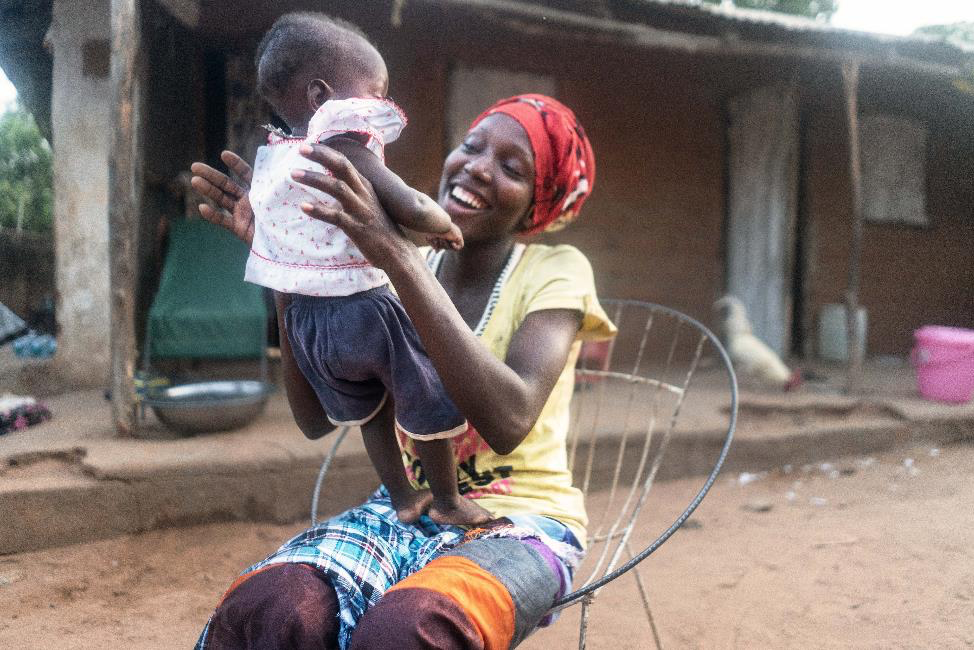
“I always try to promote peace and healthy life for all. It’s important to deliver messages that are supported by facts in an effective way. The Government and UNICEF provided me correct information and facts about polio and vaccines, so I am happy to volunteer for the campaign.”
A country mobilizes to stop polio
“If people trust health workers to cure other diseases, then it makes sense to trust the same health workers to protect our children from polio. Health workers even give the polio vaccine to their own children – so we should not doubt their good intentions. It is my job to let people know this truth, without offending them, and encourage them to vaccinate their kids,” Takatiti said.
In August 2021, The Gambia declared a national public health emergency in response to outbreaks of non-wild variants of polio in the country.
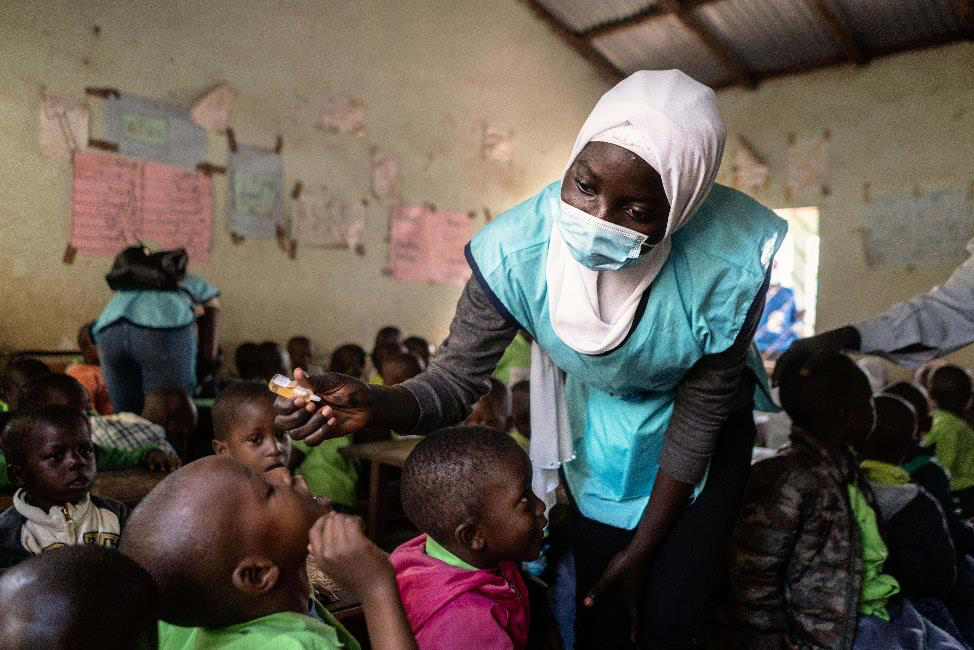
The Gambian government, with support from WHO, UNICEF, US Centres for Disease Control and Prevention (CDC)and GPEI partners, quickly responded and started preparing for nationwide immunization campaigns – managing supply and safe storage of vaccines, strengthening surveillance and monitoring, training health workers and vaccinators, and engaging with local leaders and influencers to build trust in vaccines.
The country undertook its first national polio vaccination campaign in November 2021 and followed up with a second round in March 2022.
Thanks to thousands of health workers, vaccinators, and community influencers like Takatiti, the vaccination campaigns have reached over 380,000 children aged five years and below in The Gambia.
